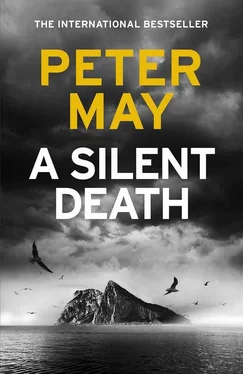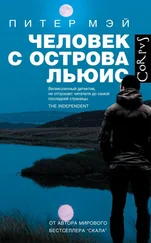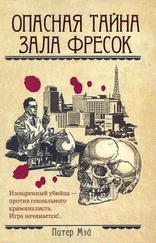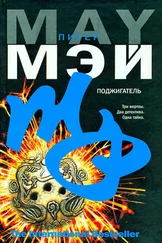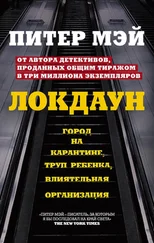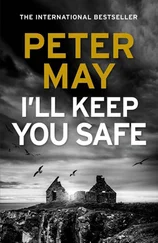Here’s to the crazy ones, the misfits, the rebels, the troublemakers, the round pegs in the square holes. The ones who see things differently. They’re not fond of rules. You can quote them, disagree with them, glorify or vilify them, but the only thing you can’t do is ignore them because they change things.
Steve Jobs
He has not the least idea as he turns off the lights, that what he is about to do will lead to the spilling of blood on this warm May evening. And, ultimately, to death. Innocence is so often the precursor to calamity.
It is the moon that first catches his eye. A gibbous moon, lifting from the black of the Mediterranean to cast its reflection on a surface like smoked glass. He could not have said whether it was waning or waxing. The weather in the last week has been uncharacteristically overcast, and it seems like an age since he last stood on his terrace gazing up at a firmament fighting to make itself evident beyond the light pollution of this congested Andalusian coastline. But those clouds have dropped their tears on arid soil and moved on, green shoots of renewal rising almost immediately in their wake.
The heat has resumed. With the promise of a return to the daily ritual of endless sun. Why else would they call it the Costa del Sol? It is a prospect that stretches off towards summer, and the distant autumn, unpunctuated for the most part by rainfall. A fierce angry heat reaching its crescendo as the tourists arrive en masse to spoil the beaches, turning white skin red, then brown, whilst locals move among the shadows cast by tall buildings in narrow streets, sleeping in the heat of the day, eating in the cool of the evening.
It is fresh now in this midnight hour, the faintest of sea breezes rattling palm leaves in the garden beyond the pool, the chirr of cicadas pervading the night air. And it isn’t until he flicks a switch to extinguish underwater lighting that he notices a glow beyond the wall, where he expects the neighbouring villa to simmer in darkness. Light spills across the terrace from sliding glass doors casting the long shadows of pool loungers across terracotta tiles.
He tenses as a silhouette moves in the open-plan living space beyond the glass and momentarily passes through the light. His heart rate increases. A pulsing in his head as his blood pressure soars, and he imagines his doctor’s disapproval. Has he not been taking the diuretics prescribed? A man of his age must be careful.
His mouth is dry. He recalls the handful of occasions he has sat with Ian on the terrace opposite sipping Harris gin, large chunks of ice jostling for space in his glass with the grapefruit. A nice young man. Scottish. But an educated accent, a pleasant lilt. And not so young, perhaps. But then, when you have reached your seventh decade everyone else seems young. He has never really thought about what age Ian might be. Forty? It is so hard to tell these days. But there is little grey in his hair. His body is lean and fit and evenly tanned. How he wishes he were Ian’s age again. Even though he knows he never looked quite that good when he was.
He recalls the cheery wave of his neighbour only that morning, calling across the wall that separates their gardens. He and Angela would be gone for a few days. A spring holiday. Barcelona. And a night or two in Sitges.
Really? A holiday? When you live in a place like this who needs holidays? And he thinks back briefly to the years he spent working in the City. The daily commute through the dark of cold English mornings, to sit in a steamy office, eyes fixed on scrolling screens, watching the rise and fall of financial charts like the swell of an ocean after the storm. It’s the one thing he and Ian have in common. Their single topic of conversation before they run out of it and lift drinks to lips to fill the silence with the rattle of ice against glass.
Now there is someone in Ian’s house, and there shouldn’t be. He thinks about walking down through the garden in order to get a better look. But what if the intruder sees him? If only he knew Ian’s mobile number he would call and ask him what to do. But they have never swapped numbers. Why would they?
For a frozen moment he stands on his terrace and wonders why the alarm has not gone off. Then once again a shadow passes through the light. Quite brazenly. And he turns quickly and heads inside to find his phone.
There are three officers on duty in the squad room when the call is picked up by the duty officer at the desk. He thinks that Cristina has been watching him through the glass before averting her eyes when he looks up. He has always thought that women find him attractive. Even though he is long past his sell-by, and a succession of relationships have invariably broken down when the women have got to know him.
In truth, Cristina had been looking at her own reflection, and might have been surprised had she jumped focus to see him watching her with appraisal. For she has just been thinking how old and frayed she looks. Now in her thirtieth year, middle age is only a decade away, and already there are shadows beneath her eyes, crow’s feet at their outer extremities. With her hair pulled back severely in its habitual pony tail, black roots are showing and she regrets ever having opted to dye it blond. Too much maintenance. And soon, she supposes, those roots will start to grey. At least she still has her figure, even after childbirth. She remains slight, petite. Her male colleagues tower over her — even the smallest of them. She looks away just as the duty officer speaks.
‘Suspected break-in. Out at La Paloma.’
Diego’s eyes flicker up from his card game. From the cant of his head and the appeal in the faintest arching of his eyebrows, she knows that he wants her to go with Matías in his stead. Just thirty minutes until the end of his shift, a wife at home with a new and fractious baby awaiting his return, exhausted from giving birth only days before, and desperate for sleep.
Cristina sighs. She knows very well that her job here in this men’s club simply pays lip service to the requirement for quotas. And to the need for a policewoman to conduct the body searches of female suspects. She will never, by choice of her superiors, be entrusted with much more than traffic duty. Although she has graduated with distinction from the police academy at Àvila. Even though she is consistently the best shot at target practice in Estepona. But if Diego goes out with Matías he likely won’t be home for hours. Even if it’s a false alarm the paperwork will take forever.
‘Okay,’ she says, unaware in this counter-serendipitous moment that her act of generosity will ruin her life.
The streets of Marviña are deserted as the white Nissan four-by-four with its rack of blue and white and orange lights on the roof pulls out from the underground car park beneath the offices of the Policía Local. Matías is at the wheel, guiding them towards the roundabout at the top of the hill, through the pools of darkness that lie between the feeble lights of street lamps. From here, moonlight washes across the acres of vineyards, newly in leaf, that fall away across undulating fields towards the distant shimmer of the sea. Ugly urbanizations cluster darkly on once virgin hillsides, some abandoned, completed but uninhabited, victims of the financial crash that brought an end to the building boom that once swept this coastline. Above them the Sierra Bermeja mountains cut sharp shadows against a starry night sky. Below, the lights of Santa Ana de las Vides twinkle around the curve of the bay.
Matías drives at speed around the perilous bends of the road that descends to the sea, past the gathering of brick-red apartments that sit above the father-and-son fruit and veg store on the hairpin, and the jumble of white houses that nestle among the folds of the hill away to their left. It takes less than fifteen minutes heading west on the A7 to reach the roundabout from which the road climbs steeply into La Paloma, where wealthy northern Europeans, and more recently Russians, have built multi-million-euro villas with spectacular sea views.
Читать дальше
